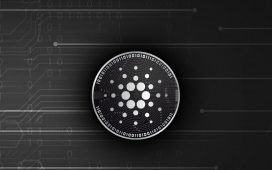AUGUSTA, Ga. — U.S. Army officials are seeking industry input on a fledgling initiative that would require companies to disclose the provenance of their artificial intelligence algorithms.
Under the AI bill of materials, or AI BOM, effort, prospective contractors would be asked to provide the service an inside look at their digital ingredients and supply chain. It would resemble software bill of materials, or SBOM, practices championed by the National Telecommunications and Information Administration and the Cybersecurity and Infrastructure Security Agency.
“The AI BOMs are critical for us,” Young Bang, the principal deputy assistant secretary of the Army for acquisition, logistics and technology, said Aug. 15 at the AFCEA TechNet Augusta conference in Georgia. “This is where we really want industry’s feedback, because, depending on what we say we want as part of the recipe for the AI BOM, y’all can come back and say, ‘That’s basically RIP.’”
The Pentagon is investing in AI, machine learning and autonomy as leaders demand quicker decision-making, longer and more-remote intelligence gathering and a reduction of human risk on increasingly high-tech battlefields. The Defense Department in 2021 established its Chief Digital and AI Office — whose executives have said high-quality data is foundational to all its pursuits — and earlier this year launched Task Force Lima to study generative AI.
An AI BOM measure is not meant to hurt companies or jeopardize sensitive intellectual property but rather improve cybersecurity and consistency, according to Bang.
RELATED

“We want to reduce our attack surface, from an algorithmic standpoint,” he said. “It’s not because we want your IP, and we’re not going to reverse engineer it to put you out of business. Why would the government do that?”
Bang teased the AI BOM possibility earlier this year at an Army networks-and-communications conference in Philadelphia known as Technical Exchange Meeting X. He and others met with industry to gather initial feedback on potential requirements but did not share insights from the get-togethers.
“Just like we’re securing our supply chain — semiconductors, components, subcomponents — we’re also thinking about that from a digital perspective,” Bang said at the time. “So we’re looking at software, data and AI.”
More than 685 AI-related projects are underway at the Pentagon, according to the Government Accountability Office, a federal watchdog. At least 232 being handled by the Army.
Colin Demarest is a reporter at C4ISRNET, where he covers military networks, cyber and IT. Colin previously covered the Department of Energy and its National Nuclear Security Administration — namely Cold War cleanup and nuclear weapons development — for a daily newspaper in South Carolina. Colin is also an award-winning photographer.










